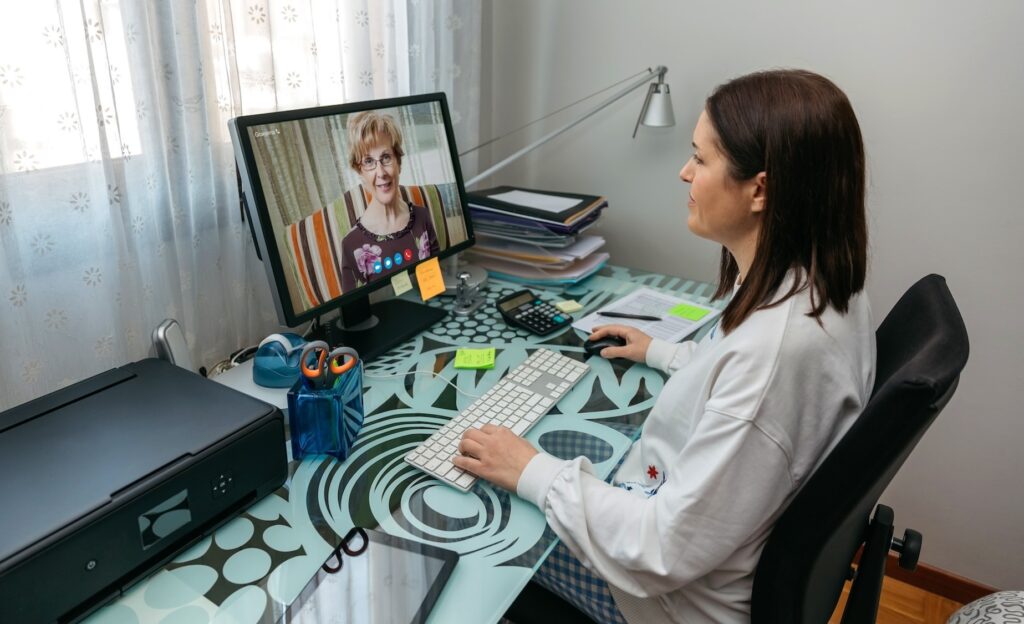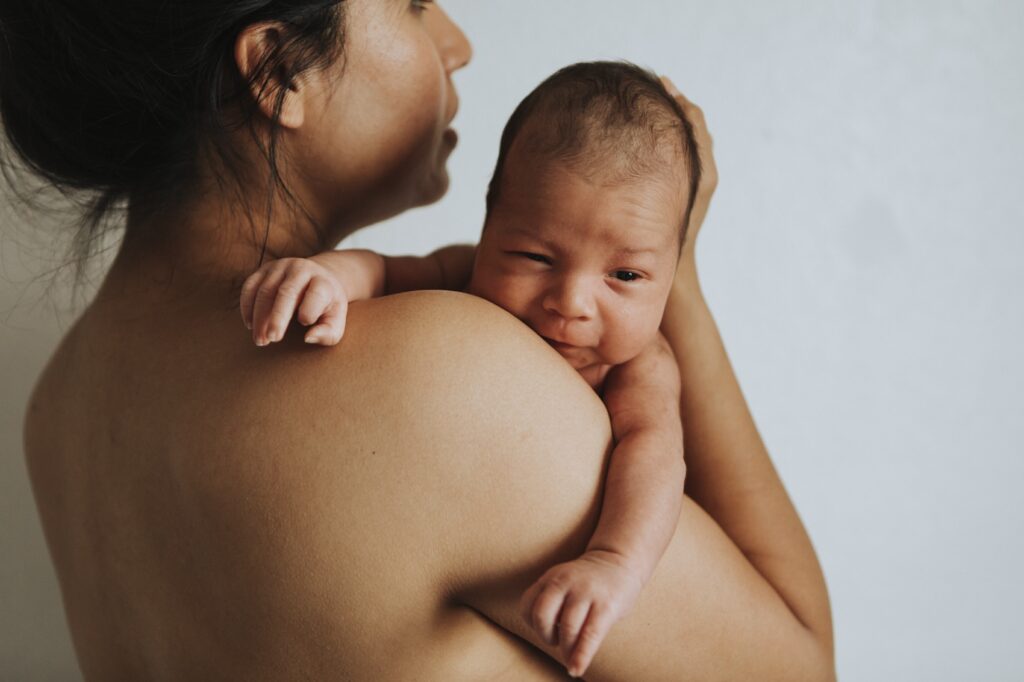
By Jeni Gentry, Crescent Moon Advanced Clinical Intern
Lonely, stressed-out moms. Does the postindustrial social experience put women at risk for perinatal mood disorders? Article by Elena Bridgers & Molly M. Fox (2024)
As a lactation consultant and a clinical intern in counseling, I have wondered what factors in a person’s life might pre-dispose them to perinatal mood and anxiety disorders (PMADS).
In the article, “Lonely, stressed-out moms: Does the postindustrial social experience put women at risk for perinatal mood disorders?”, Elena Bridgers and Molly M. Fox take a look at how evolution and industrialization play an impact on our self-efficacy as parents and our mental health.
Bridgers and Fox explore the idea that PMADS may be due to a mismatch between the environments of our past and our contemporary lifestyles. They focus on three specific concepts:
-Closer birth spacing.
-Lack of allomothering support.
-Lack of childcare experience.
Closer birth spacing:
Compared to preindustrial societies, we have our children much closer together. This may be due to women starting their families later in life or a desire for children to be friends growing up. The close proximity in births can be stressful on a woman’s body as well as her mental health as she cannot draw on the help of older children for childcare.
Lack of allomothering support:
An allomother is any individual, other than the mother, who participates directly in childcare such as the father, siblings, or other relatives. In modern society, it can be common for families to live far away from each other resulting in difficulty helping with childcare. Closer birth spacing means that older children are not likely to be able to help raise younger children. This leaves parents with the financial burden of paying for childcare when they cannot do it themselves. Managing the costs of childcare, nannies, and babysitters can be a psychological burden as well.
Lack of childcare experience:
Experience with caring for infants prior to their first pregnancy can increase a mother’s sense of self-efficacy and give her a more realistic view of the challenges of motherhood. Both of these can be protective factors against PMADS. Due to many factors, women today spend little time caring for infants before giving birth to their own children. Their lack of experience can lead to lower self-efficacy and put them at risk for PMADS.
What can we do?
When factors connected to PMADS are systematic and structural, there often are not concrete actions we can take to prevent them. We can’t go back in time and practice caring for an infant. We can’t overturn a societal system that is both financially and psychologically stressful on parents. What we can do is give ourselves some grace when these systems create stress in our lives.
If the stress of being a new parent, an isolated parent and/or a working parent is overwhelming your mental health or your relationships, consider working with a Perinatal Mental Health Professional. Therapists who specialize in perinatal mental health (PMH-C) are educated on the full spectrum of challenges of the parenting experience.
Community Resources:
https://www.illinois.gov/services/service.pregnancy-parenting-assistance.html
https://www.dhs.state.il.us/page.aspx?item=29724
https://www.chicago.gov/city/en/sites/onechifam/home/family-wellness/family-connects.html
https://childcare.gov/state-resources/illinois
Infant Care Education Resources:
https://www.uchicagomedicine.org/patients-visitors/classes-events/infant-care
https://birthandbabyuniversity.thrivecart.com/newborn-care-101-self-paced-cfd/


